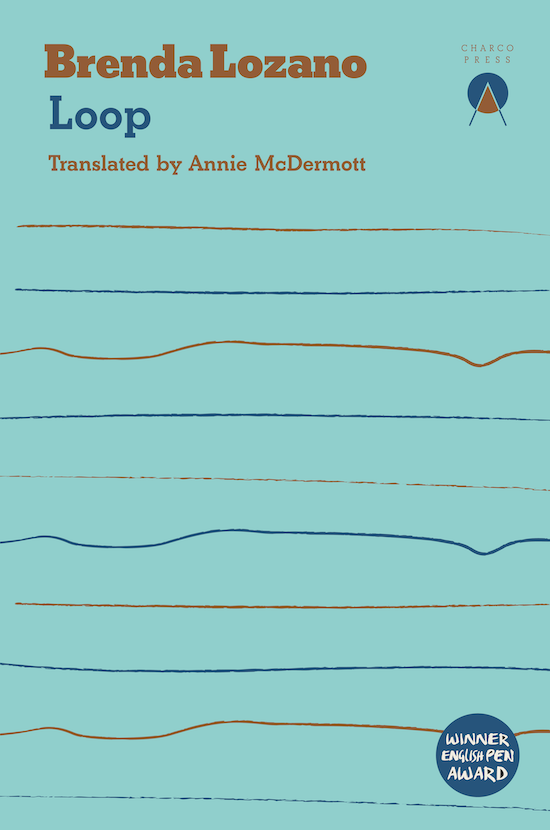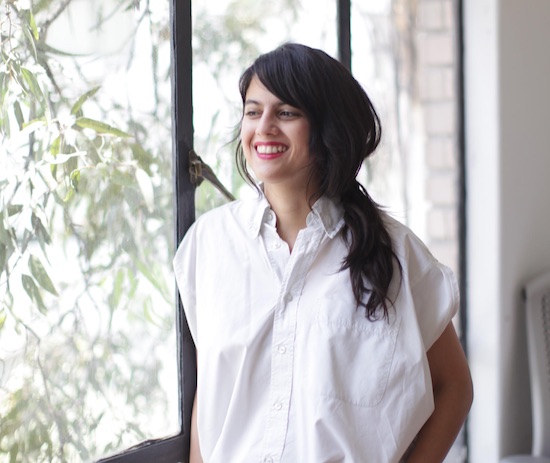“Today a dwarf smiled at me.” So begins Loop, the first of acclaimed Mexican novelist and essayist Brenda Lozano’s works to be translated into English. This simple gesture on behalf of the dwarf prompts in the unnamed narrator, who awaits the return of her lover from Spain, a wilfully “useless” study of scale and size, distance and perspective, longing and fulfilment, in which the chaff is favoured over the wheat. “These days,” the narrator relates, “people look to what’s big. The big picture, big sales figures, success. Bright lights, interviews, breaking news. Whatever’s famous. Importance judged by fame. Maybe small things are subversive. Living on a modest scale compared to the norm.” A form of literary dumpster diving, Loop is nourished on what most novels discard.
Zipping along with the kind of whimsical, non-linear vignettes that animated Renata Adler’s Speedboat, Lozano’s anti-novel throws down nodal points of entry and departure to create seemingly random junctions between mythology, fairy tale, pop culture and literature. In the accretion and erosion of fragments, David Bowie’s ‘Wild is the Wind’ becomes submerged in a deluge of Proustian images and sensations only to later return in transmogrified form as, “A concert of trees and bushes. The wind in the branches: the song of the notebook in its original version. Silence. Listen to that song.”
Unlike humans, nature wastes nothing. All matter is eventually broken down and recomposed. “If I could turn into a bird,” the narrator considers, “I’d choose a swallow.” Where controversial feminist Camille Paglia has mapped disturbing zones of experience in which sex, cruelty and metamorphosis overlap, Lozano offers a less severe proposition: love, gentleness and transformation. Her free associations between these themes are reminiscent of the paintings and designs of Leonor Fini, whose affiliation with the French surrealists inspired joyful visions where eroticism and dream fused in images of women with ornate birds wings for legs.
Although in dreams the narrator sheds her human form, over and again she questions whether words can also change us, whether the act of writing and reading can “transform us into something we have yet to discover.” As JG Ballard explored in many of his novels and short stories, themselves inspired by the surrealist paintings of Dali and de Chirico, turbulence in nature or society may be used to dismantle the rigid identities we’ve formed as protection against the unpredictable and the unknowable. In Ballard’s prose, inner landscapes shift to reveal new doors of perception. “From one moment to the next,” the narrator of Loop tells us, “everything can change…vulnerability is everywhere because the vulnerability is in us.”
At the same time, brutal reality seldom rewards any such move towards vulnerability. “Isn’t literature somewhat misshapen compared to the news? Isn’t a novel a kind of dwarf compared to a newspaper?” Such questions haunt the narrator as she attends a writer’s convention. Here the distance between a cosy literary event and the agony of the streets is magnified when the writers are cautioned not to leave the hotel on account of the area being too dangerous. Outside the hotel life and death are neither sanitised nor mediated, while inside the narrator’s fellow scribes recite their work in fake voices and raise the subject of sex only through a shield of clumsy metaphors. The atrocious degree of suffering going on outside the building dwarfs her, but also the bloated self-importance of those she measures herself against. For better or worse, “Words carry us far away, always so far away from reality.”

Indeed, reality is disordered and inconsistent in a way that fiction generally isn’t. Yet language is slippery and prone to bifurcation. Likewise, even the most simple passages in Loop invite a multiplicity of interpretations, or better still, they invite you to interpret none of it – “Unlearning yourself is more important than knowing yourself.”
To unlearn yourself, the narrator seems to imply, is to accept that life doesn’t have a fixed purpose, a usefulness, but is random, pretty much all of it eluding us in the deep complexity of its simultaneous ebb and flow. “This being here, this moment which is happening now, and which begins to fade as soon as I write anything, and which is luckily followed by this one, and this one, and then this other moment that’s as full of life as the next.”
This endless moment, this mysterious loop, becomes all-encompassing. It engulfs Allen Ginsberg’s poem, A Supermarket in California, and reconfigures his sighting of Walt Waltman and Federico Garcia Lorca into that of Oscar Wilde and Fernando Pessoa. It shares contours with Pessoa’s Book of Disquiet whose narrator, like Lozano’s, works a humdrum office job; and when Lozona’s narrator states, “Last year I had an accident I almost didn’t come back from,” it’s as if she’s merging with Frida Kahlo whose life nearly ended when she was hit by a bus.
“The first thing ever written down is a lament,” the narrator tells us. “The first writer writes the lament of her transformation. The first writing is on sand, on the banks of a river; words that soon become indistinct, that don’t last…” Equal parts sorrowful and hopeful, playful and serious, diary and fable, Loop can be read as many things. It can be read as a lament for a species whose greed and obsession with success has made it lose perspective and exaggerate its proportions, and which now threatens to erase itself from history like writing on the sand. It can be read as a manifesto for realist magic as opposed to magic realism. It can be read aloud between lovers or in solitary silence. But most important of all, it should be read, period.
Loop, by Brenda Lozano, translated by Annie McDermott is published by Charco Press


